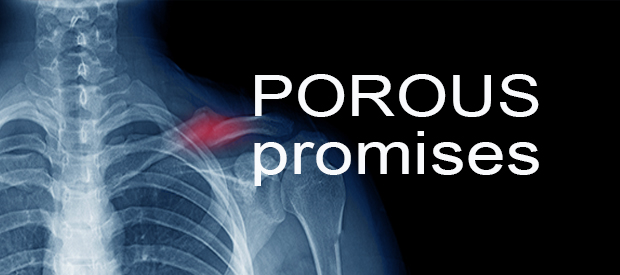Franchise 101: Can’t Break the Broker; and Bad to the Bone

Franchisor 101: Can’t Break the Broker
A Minnesota federal court ruled in favor of a franchise broker on summary judgment. The court dismissed misrepresentation claims brought by a military veteran who alleged unlawful inducement to invest in a failed kickboxing business. The court held that only one of the many claimed pre-sale statements was a material statement of fact. The other statements were mere puffery or predictions of future events. The one actionable statement – that none of the franchisor’s outlets had closed – could not have reasonably been relied on in deciding to buy the franchise.
The broker, FranChoice, sold a franchise for the iLoveKickboxing.com (ILKB) franchise system. Of many statements the franchisee claimed were false, the trial court focused on the following as alleged statements of past or present fact: (i) ILKB franchises were suitable for absentee ownership, (ii) other ILKB franchisees made $10,000 to $20,000 in monthly profits, (iii) no ILKB franchises were struggling, (iv) ILKB locations broke-even before their grand openings, and (v) ILKB handled all marketing. The court observed that the franchisee offered no evidence that any of these representations were false when made.
Regarding alleged misrepresentations that (i) start-up costs would be no more than $275,000, (ii) the franchisee should expect to make $10,000 to $20,000 in monthly profits, and (iii) only 200 members were needed for the kickboxing center to break-even, the court held such statements were merely predictions of future events. The franchisee failed to show they were not reflective of past or present circumstances when made.
The only actionable misrepresentation was FranChoice’s statement that no ILKB outlets ever closed. This statement was found to be untrue. But the court was persuaded by evidence that FranChoice emphasized to the franchisee to conduct his own investigation. FranChoice pointed to the FDD, which listed 12 franchises that closed, and contact information for the former owners. The court noted the franchisee was a West Point graduate with an MBA and determined he could not have justifiably relied on an erroneous statement that was directly contradicted by the FDD.
The franchisee asserted false statements on FranChoice’s website. These included representations that (i) FranChoice takes rigorous pre-screening measures to present only strong, stable, high quality opportunities, (ii) FranChoice consultants are “experts” who “truly understand” their franchise companies, and (iii) FranChoice provides all the information potential franchisees need to “find the opportunity that fits their goals.” The franchisee challenged FranChoice’s assertions that it vets litigation, failures, and owner satisfaction of the franchises it sells. But these were outside the scope of the alleged false statements in the pleadings. And even if the court were to consider such statements, the court viewed the website representations as puffery. As an evidentiary matter, the court found FranChoice did review ILKB’s FDD, directed the prospective franchisee to review it and provided sample questions to ask.
Franchise brokers can be instrumental in helping start-up franchise systems take flight and existing ones stay present in the franchise marketplace. Brokers can also mire a franchisor in bad publicity and litigation if not carefully selected or if the brokers do not operate with care. Franchisors that outsource franchise sales should consider a potential broker’s experience, reputation and wherewithal to defend and protect themselves and the franchisor they represent, should rescission or misrepresentation claims arise out of the pre-sale experience.

Franchisee 101: Bad to the Bone
A group of franchisees sued OsteoStrong, a franchisor of bone density improvement centers. They claimed omissions in the FDD about bankruptcies and lawsuits, and misrepresentations of patent rights to equipment and OsteoStrong’s relationship with motivational speaker Tony Robbins. Some representations concerned use of loading equipment, known as the “Spectrum equipment” package. OsteoStrong claimed its equipment increases bone density, prevents osteoporosis, and is able to diagnose, cure, mitigate, treat or prevent medical diseases.
The franchisee group claimed OsteoStrong exposed them to civil and criminal liability by requiring use of marketing material that claimed the equipment was a medical device. They claimed the equipment was not reviewed or approved as a medical device by the government. They sought an injunction to stop OsteoStrong from representing that the Spectrum equipment or franchise system can diagnose, treat, or cure any medical condition, and from making claims like “reversing Osteoporosis,” “reversing type 2 Diabetes,” or that the equipment was safe. They claimed that without injunctive relief they were in the untenable position of breaking the law or breaching franchise agreement provisions requiring them to operate in compliance with all laws and regulations, including for sales and marketing.
The trial court denied the preliminary injunction, on the ground the franchisees failed to show irreparable harm. The Hobson’s choice of abiding by the franchise agreement and breaking the law, or obeying the law but losing their businesses, was insufficient to show irreparable harm. The court was persuaded that the franchisor never received an FDA complaint and the franchisees presented no evidence of injuries or complaints from clients, or of being threatened with civil or administrative action.
The court was not convinced that irreparable harm was likely to occur, but merely that harm was possible. The franchisees’ record of ongoing operations prior to bringing the action may have affected the court’s analysis. Some franchisees claimed they relied on FDDs as far back as 2013. It behooves franchisees considering whether to seek injunctive relief against a franchisor to balance the cost and high stakes of the motion, along with the likelihood of a “no harm, no foul” determination.